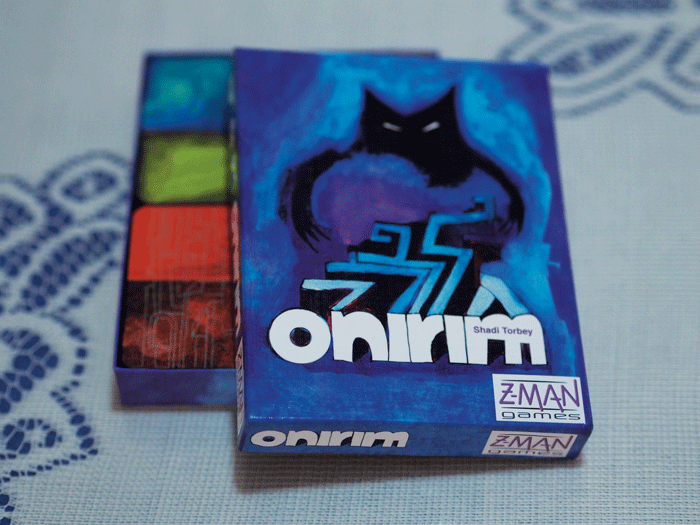Solo board games are a funny business. First of all, nobody can catch you cheating. The temptation of closing an eye to a few little mistakes or ‘forgetting’ a rule are alluring. Second, you have nobody to rub the wrong way when you make a good move. Third, there’s nobody to beat. Board games initially strike us as a multi-player group affair, but solo games do exist. We have all played solitaire.
Onirim is a one-player card game. Although two people can play co-operatively I like it best solo. In Onirim you play as a ‘Dreamwalker’: a person stuck in a dream trying to find his way out before he is consumed by his own nightmares. To escape you must assemble a total of eight doors before the deck runs out. If it does you’re in trouble and stuck forever (till the next game).
By playing cards you move from room to room inside a labyrinth. When you manage to play three rooms of the same colour consecutively, a door of that colour ‘appears’, as in, you search for one inside the deck.
‘Hah, sounds easy!’ you might say. ‘Hah, you’re wrong’. There are nightmare cards, and nightmare cards are… horrible. You can only play one card per turn, and you might have a cunning plan set up cheerfully in your hand, but then a ‘nightmare’ happens, and you need to discard all your cards, and start over. Thankfully, the ‘nightmares’ can be dodged. Prophecies allow you to see the future, while keys negate a ‘nightmare’s’ effects.
I like Onirim. It is different, has gorgeous art, and is wonderfully balanced. The only downside is that it is out of print. But worry not, Dreamwalker! Onirim will be reprinted this year and you can get your dreamy paws on it… soon enough.
This article forms part of The Gaming Issue






Comments are closed for this article!